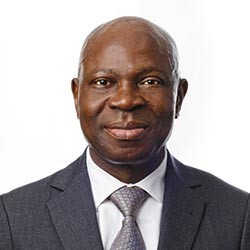Gilbert Houngbo, UN-Water Chair and President of IFAD on the occasion of the 7th International Day of Women and Girls in Science Assembly
IFAD Asset Request Portlet
Asset Publisher
Gilbert Houngbo, UN-Water Chair and President of IFAD on the occasion of the 7th International Day of Women and Girls in Science Assembly
11 February 2022I am very glad to have the chance to talk about women’s vital contribution to scientific innovation in the context of water.
As Chair of UN-Water – the coordination mechanism for the United Nations’ work on water – and as President of the International Fund for Agricultural Development, I personally take a close interest in these issues.
This is the way I see it: Today, the world is off track to meet Sustainable Development Goal 6 – to ensure safe water and sanitation for all by 2030. To get back on track, we must draw upon all the talent that is available, irrespective of gender.
We cannot afford for women to be under-represented in science and technology.
According to UNESCO, just 30 per cent of researchers worldwide are women. In Bolivia, 63 per cent of researchers are women, in France just 26 per cent, and in Ethiopia a mere 8 per cent.
The water sector is no exception. Among water service providers, a recent World Bank study found that women make up only 17 to 25 per cent of the workforce.
Gender inequality among workforces engaged in sustainable development is both unacceptable and counterproductive.
Innovation is not only about scientific breakthroughs. It is also about working together in new ways – including in financing – to get the job done. Capacity development is about removing barriers, eliminating inequalities, and making the best use of all existing talent.
Business as usual is not an option. More gender diversity in water and sanitation will lead to faster, better, more effective programmes. Our promise of ‘leaving no-one behind’ applies just as much to our workforces as it does to the communities we want to reach.
Please, let’s work as one to solve the global water and sanitation crisis.
